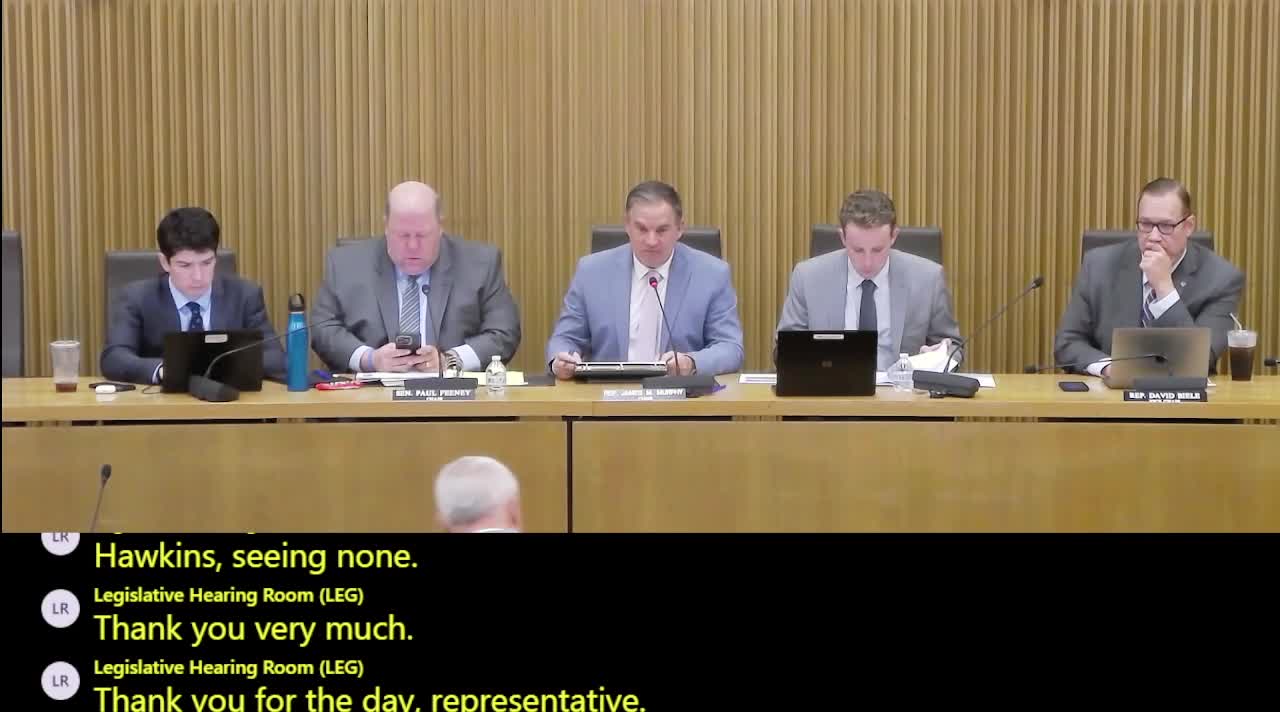Joint committee hears competing testimony on bill to require insurance coverage for detransition care (H.1172)
Get AI-powered insights, summaries, and transcripts
Subscribe
Summary
The Joint Committee on Financial Services in Boston heard hours of testimony on House Bill 1172, a proposal that would require insurers who cover gender‑affirming care to also cover medical and mental‑health services for people who later choose to detransition.
The Joint Committee on Financial Services convened a hybrid hearing in Boston to receive testimony on House Bill 1172, which would require health plans that cover gender‑affirming services to also cover medically necessary care for people who later seek to detransition.
Supporters described a growing population of people who asked for reversal, restoration or new medical and mental‑health care after undergoing irreversible procedures or long‑term hormone therapy. They urged the committee to remove financial barriers that leave detransitioners “abandoned” and unable to afford follow‑up care.
"This bill will ensure that insurance will cover medically necessary detransition care, hormone restoration, surgical repairs, and the mental health treatment," said Jamie Reed, co‑executive director of the LGB Courage Coalition, who testified she had worked inside pediatric gender care settings and now works with detransitioners.
Several detransitioners recounted clinical and financial difficulties after stopping hormones or seeking surgical revision. "I began medical transition when I was 18... Over the following years I received multiple gender‑affirming surgeries, which were covered by my private insurance," said Seija Damske. "When I detransitioned, I found no safe landing space medically. The major barrier has been insurance." Another witness, Leila Jane, described being prescribed puberty blockers and testosterone as an adolescent and undergoing a mastectomy at 13, telling the committee: "I didn't even know this could be a complication when the surgery was done at 13."
Clinicians and retired judges joined proponents. Dr. Roy Eapen, an endocrinologist, said, "If a health insurance plan covers transition services it should cover these transition services," arguing that fairness and continuity of care support the bill. Retired Associate Justice Elspeth Seifer framed the measure as an equity and fairness issue: without coverage, people who were insured for initial procedures can be left unable to pay for later corrective care.
Opponents and some clinicians questioned whether the legislation was the right policy response. Devin Skiles, a transgender man who testified in opposition, said, "This bill isn't about expanding care. It's about giving political cover to anti anti trans narratives" and urged the committee to reject H.1172 because, in his view, existing providers and clinics are positioned to meet patients' needs.
Testimony also addressed practical barriers to providing detransition care: the absence of diagnostic and billing codes for detransition‑specific services, difficulty finding providers willing to manage hormone restoration, and insurers' inconsistent application of coverage when diagnoses or goals change. Several witnesses urged the committee to consider both a clear legislative mandate and work on clinical guidance or billing pathways so hospitals and physicians could be reimbursed for detransition‑related work.
No committee vote was taken. Witnesses on both sides asked the committee to consider practical steps — from creating diagnostic codes to convening clinical guidance panels — that would make coverage usable for providers and patients.
The committee did not take formal action on H.1172 at the hearing; members heard several hours of testimony and announced further consideration would follow in committee business.
Proponents and opponents agreed on the high stakes for individuals involved: whether framed as repairing harm or as an unnecessary pathway, both sides emphasized patient welfare and urged thoughtful policy design.
(Reporting note: direct quotations in this article are drawn from testimony submitted at the Joint Committee on Financial Services hearing shown in the committee transcript. All quoted speakers appear in the article's speaker list.)
